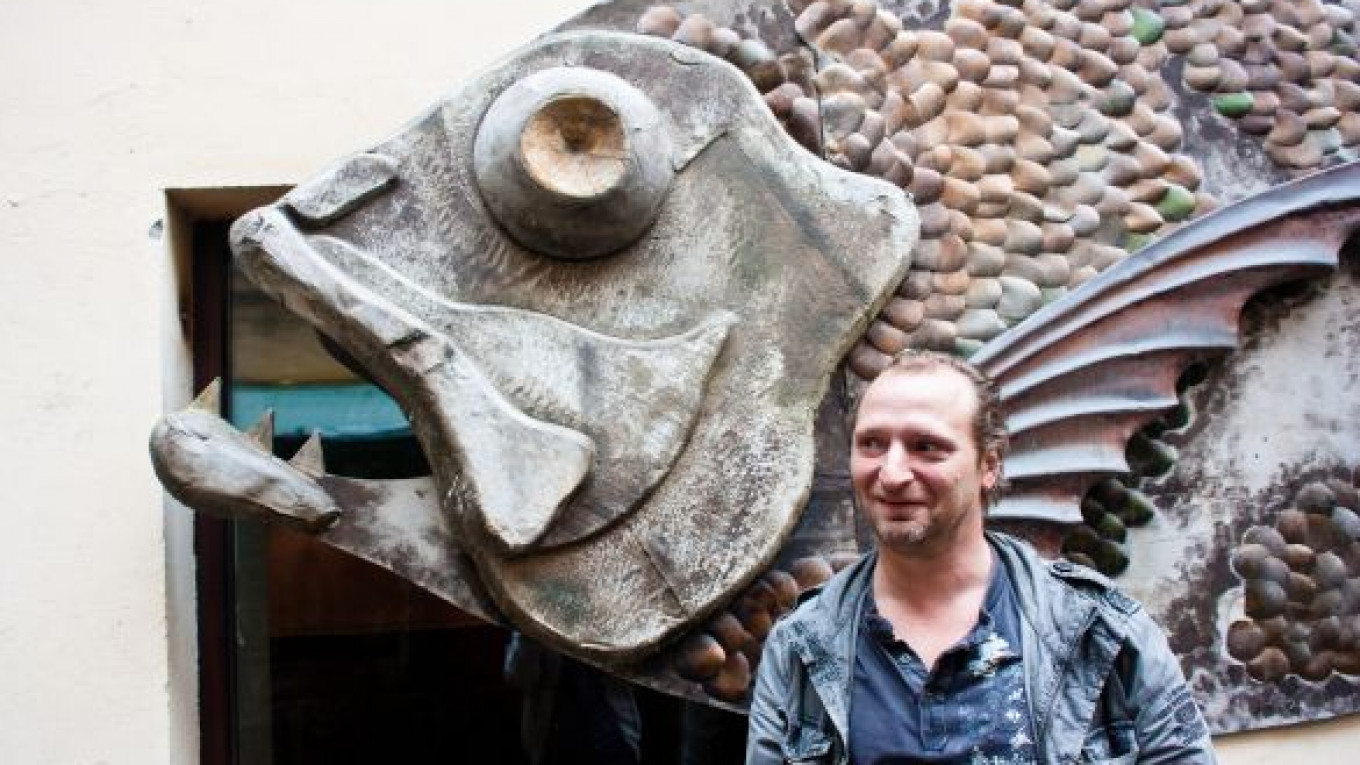ST. PETERSBURG — St. Petersburg's pioneering rock club — and the oldest surviving in town — will mark its 18th anniversary this week with a concert by pop-rock band Polyusa and a party.
Fish Fabrique was launched with a concert by local alt-rock band Tequilajazzz on Sept. 2, 1994, and took its name from Berlin's club Fabrique and the nickname of its former co-owner, Oleg "Fish" Labetsky.
Located on the fifth floor of the now-legendary squat at 10 Pushkinskaya Ulitsa, occupied by artists and musicians, the club became an instant hit in the local underground music scene.
"There was a saying, 'Where's the deepest underground in St. Petersburg? On the fifth floor!'" owner Pavel Zaporozhtsev recalled.
The club faced almost no competition at the time, as there was only one other club, the equally legendary TaMtAm. As TaMtAm had only evening concerts, its clientele would then head to party all night at Fish Fabrique.
"There was no concept of DJs then, people just had fun to a tape recorder," Zaporozhtsev said.
Affectionately known as Fishka, the club immediately became a popular hangout especially among expats. Zaporozhtsev recalled one OMON riot police raid on the venue.
"They burst in and made everyone line up, but it turned out that out of 100 people, only two or three were Russians; all the rest had Western passports," he said. "[The police] didn't know what to do and left."
Club owners claim to have held Russia's first Halloween party, put together by a group of the club's American friends.
"People had no idea what Halloween was," said Zaporozhtsev, remembering one man who came in a three-piece suit because he thought it was appropriate attire.
Running a club in a 1990s squat was not easy. The water pipes exploded in the basement during the club's first winter, and the staff had to carry 20 canisters of water upstairs every day for the bar and toilet. With electricity cut off, Zaporozhtsev had to bribe an electrician to connect the club via the next-door building. The stairs were lit by candles.
Still, Fish Fabrique did have table football, brought from Germany and inherited from TaMtAm after it was closed down, it was said to be the first one in the Soviet Union.
After a number of attempts to evict the artists, City Hall finally came to an agreement with the squatters, splitting the building between the city and the artists. Fish Fabrique was given a smaller room in which a bar and a stage were set up.
The interiors were designed by Rechniki (Rivermen), an underground art group of squatters and metal sculptors.
One interesting fact about that bar is that St. Petersburg's former mayor Anatoly Sobchak threw a closed party there for the artists of the Pushkinskaya 10 art center in February 2000, just days before he died of a heart attack in Kaliningrad.
The bar, which has a capacity of about 100, expanded in 2010 and now has a bigger room right across the courtyard.
"There's a certain contingent that doesn't accept the new aesthetics and goes only to the old bar, and there's a newer bunch of people who only go to the new room."
The club has seen many characters, including its famous cat Fishka, who was with the club for 13 years before dying of old age — although not before giving birth to nearly 100 kittens, which were distributed among musicians and regulars. Yevgeny Fyodorov, the Tequilajazzz frontman who now fronts a new band called Zorge, owns one of Fishka's offspring.
"They went all around the world; I know for sure that seven went to Finland, four went to Germany and a couple went to France," Zaporozhtsev said.
The club's new cat, Rusya, was adopted from a pet shelter, has no tail and has been neutered.
"She catches mice, she knows her job well," he said.
Related articles:
A Message from The Moscow Times:
Dear readers,
We are facing unprecedented challenges. Russia's Prosecutor General's Office has designated The Moscow Times as an "undesirable" organization, criminalizing our work and putting our staff at risk of prosecution. This follows our earlier unjust labeling as a "foreign agent."
These actions are direct attempts to silence independent journalism in Russia. The authorities claim our work "discredits the decisions of the Russian leadership." We see things differently: we strive to provide accurate, unbiased reporting on Russia.
We, the journalists of The Moscow Times, refuse to be silenced. But to continue our work, we need your help.
Your support, no matter how small, makes a world of difference. If you can, please support us monthly starting from just $2. It's quick to set up, and every contribution makes a significant impact.
By supporting The Moscow Times, you're defending open, independent journalism in the face of repression. Thank you for standing with us.
Remind me later.






